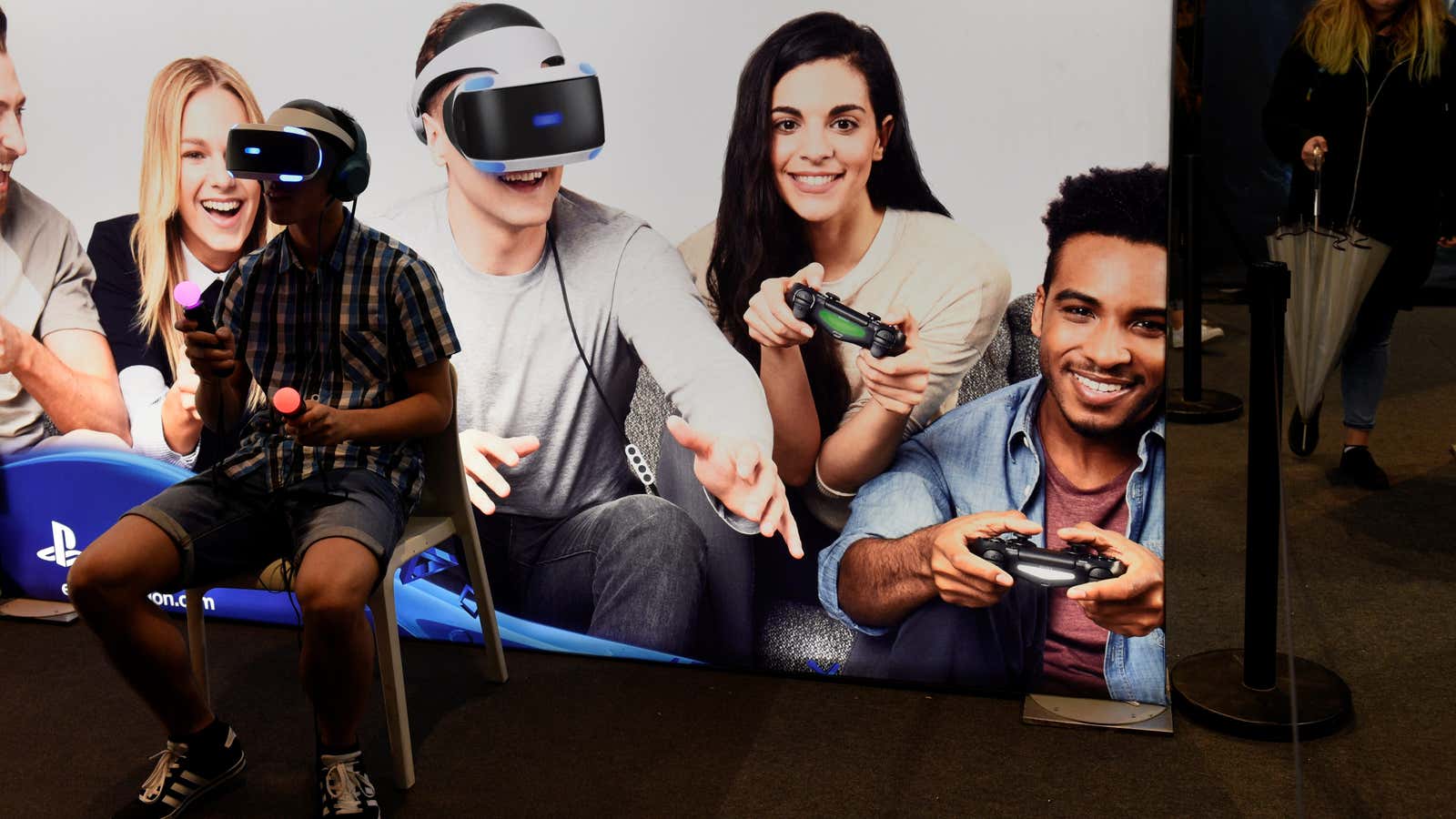The World Health Organization (WHO) has included “gaming disorder” in a draft of its upcoming 11th International Classification of Diseases—a book used by researchers and doctors to track and diagnose disease—describing it as “a pattern of persistent or recurrent gaming behaviour” that may include impaired control over gaming activities, and is severe “to the extent that gaming takes precedence over other life interests and daily activities.”
The entry suggests these symptoms need normally be present for a period of at least 12 months to justify a diagnosis. WHO did not include prevention or treatment options for the disorder.
Experts have long debated whether video game addiction should be considered a mental health disorder. A 2009 study in the journal Psychological Science estimated that 8.5% of US youth between the ages of 8 and 18 who played video games also showed signs of behavioral addiction to those games. Proponents of classifying video game addiction as a disorder say that it’s not so different from addiction to drugs and alcohol.
But others have argued that the WHO’s classification is scientifically unsound. “This was a very poorly thought out decision [by the WHO],” Chris Ferguson, a psychology professor at Stetson University in Florida who has studied how video games impact society, told Gizmodo. “The evidence we now have suggests that ‘gaming disorder’ is merely symptomatic of other, underlying mental health problems and that gaming is often used as a coping mechanism for these problems.”
The recognition of “gaming disorder” in the International Classification of Diseases will mean insurance companies are more likely to reimburse video game addiction treatment centers.
